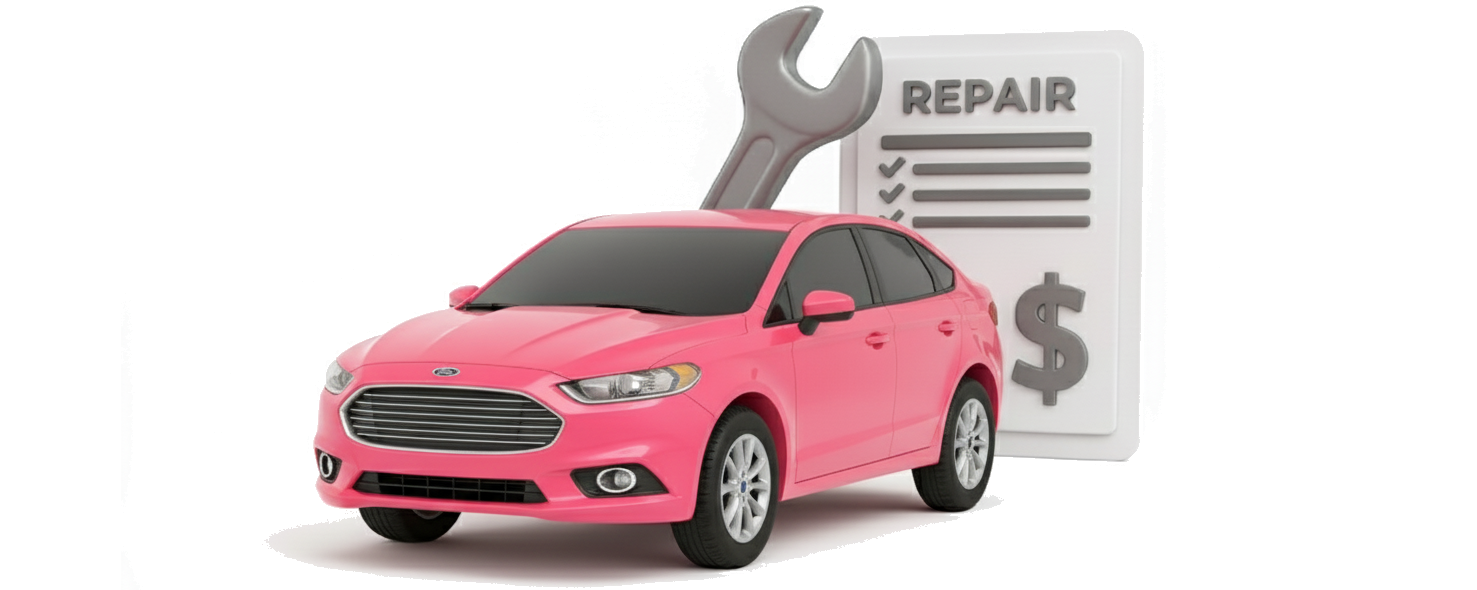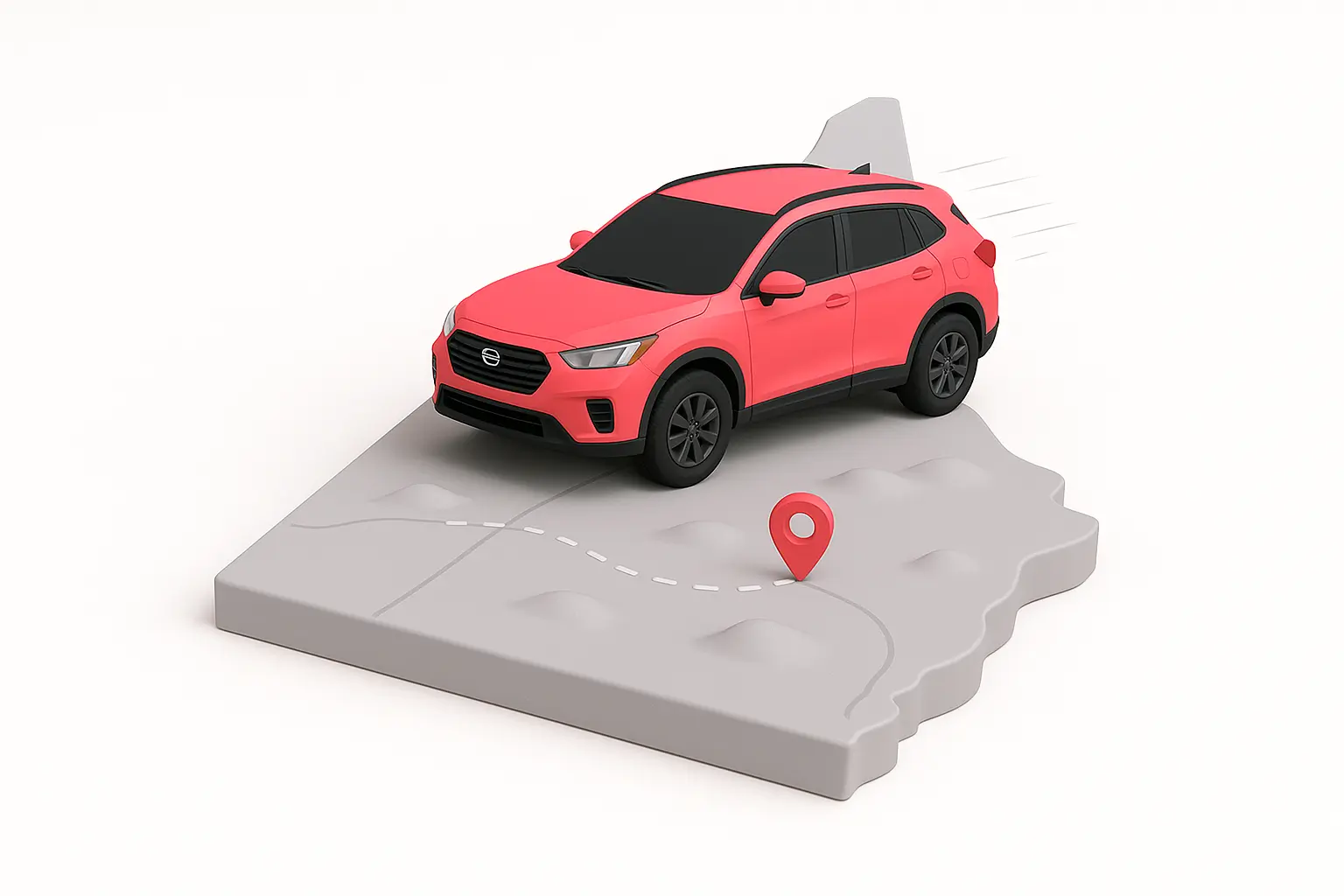The cost of this repair is dependent on the manufacturer’s engineering complexity and the needed parts. In general, replacing an outer tie rod end can reasonably be performed in less than three hours, if there are no complications. An alignment is also required, which is included in these estimates.
The Jerry app provides diagnostic and repair guidance along with access to accurate pricing. Download to take some of the hassle out of the repair experience.
Real customers Jerry helped
While pricing can vary based on different factors like location, parts used, and exact vehicle, Jerry uses real customer experiences to show what drivers are paying right now. Here are some examples of what Jerry customers are paying.
Cost breakdown: why the cost varies
For experienced technicians, most tie rod end replacements are fairly simple. Even so, there are a few things that Jerry has found can complicate this repair and increase costs.
Environment:
Cars in beach environments or around road-clearing chemicals might experience corroded components or seized parts.
Vehicle age:
The integrity of parts diminishes with age. This is usually only applicable with vehicles 20 years or older or 100k+ miles on the odometer. The older they are, the more corrosion occurs and the harder the parts are to disassemble and reuse.
Inner vs. outer:
The outer tie rod end is typically the easier of the tie rods to replace with a labor range of .5hr to 1hr at plus a wheel alignment. Inner tie rod ends often require partial disassembly of the rack and pinion – special tools are needed.
Single vs. both sides:
These parts are mirrored on either side of the vehicle, and it could be worth the extra cost to replace both sides at the same time for some savings. A wheel alignment will have to be performed each time the steering system is disturbed.
Parts cost:
Aftermarket tie rod ends are often priced $25–$75 while OEM units may cost $75–$150. Premium parts with added grease fittings or heavy-duty construction may cost more.
Difficulty:
If the tie rod end is rusted, seized or causes damage to other components during disassembly, additional parts and/or labor charges may arise. New rack boots, jam nuts or cotter pins can add $20–$100 to the bill. The more difficult a repair is, the longer it will take to be repaired. At an average of $130 per hour, two hours of labor will be $260. Depending on the manufacturer’s design choices, a repair could take 4–5 hours. With a labor cost of $520–$650, plus parts of $50-$350, the bill can add up.
Tip: Don’t confuse the tie rod end with the ball joint that connects the hub to the wheel itself. A ball joint does perform a similar basic function.
The repair explained: What is a tie rod end?
The tie rod end connects the steering gear assembly to the steering knuckles, helping to turn the wheels when you move the steering wheel. When you turn left or right, the steering gear pushes or pulls the tie rod ends, which pivot the wheels left or right. Different vehicles use different steering system designs, so confirm with your mechanic which parts are right for your vehicle.
Your action plan: How to get it done right
Understand your vehicle:
Assess potential difficulties based on your vehicle–tire wear, loose steering, knocking or clunking– and confirm that symptoms show a need for this repair.
Plan for an alignment:
Replacing a tie rod end changes the steering geometry and an alignment is thus required. Even a short trip to the alignment shop may cause tire damage.
Get competing quotes:
Use a tool like the Jerry app to compare detailed, written quotes from certified local shops. Confirm hours charged, labor rate and the parts list.
Prioritize quality workmanship and parts:
Choose a reputable shop with skilled technicians and good reviews. Tie rod ends are safety critical.
Use the Jerry app to get real quotes from local shops to ensure you are getting the best price.

Symptoms of a failing tie rod end
A worn or damaged tie rod end can cause handling and tire issues, and Jerry customers are seeing these signs of repair:
Loose or wandering steering:
The car may drift and require frequent corrections.
Clunking or knocking noises:
Often heard at low speeds or over bumps.
Uneven or accelerated tire wear:
Misalignment caused by a loose tie rod end alters tire–road contact.
Off-center steering wheel:
Steering geometry changes when a tie rod end loosens or wears out.
DIY vs. pro: What to expect
Replacing a tie rod end is possible for a skilled DIYer, but it requires the right tools and experience. The job can quickly turn frustrating–or unsafe. Jerry’s pricing tool can offer transparency on parts and labor rates. A pro will cost more, but the work comes with diagnostic accuracy, proper torque measures and an alignment on site.
| Consideration | DIY | Pro |
| Fit for | Outer tie rod on a non-rusty car | Inner tie rod, corrosion, seized hardware |
| Tools | Jack/stands, torque wrench, separator, inner-rod tool, red Loctite | Full shop tools + torque/specs |
| Alignment | Required; separate trip/cost | Done in-house; included in $400–$750 |
| Time & hassle | Outer often <3h if smooth | Faster; handles surprises |
| Risk & cost | Toe way off → rapid tire wear; possible rack/boot damage; injury; savings vanish if stuck parts | Correct torque/geometry, safety protocols, liability coverage; predictable total |
Safety tip: Always use jack stands and wheel chocks to prevent unwanted movement. Extreme injury and death can occur if a vehicle falls.
Related services and parts
If a tie rod end is worn, Jerry customers are finding that other steering components likely are wearing too. A professional inspection will determine whether balls joints, control arms or other parts are due for replacement.
An alignment is mandatory. Skipping this step will damage your tires. A shop with an alignment rack has made the investment into doing the work properly the first time. Use the Jerry app to find a quality shop near you.
What our customers are asking
-
How do mechanics check for bad tie rod ends?
-
Can I drive with this issue? What happens if you wait too long?
-
Do I really need an alignment after replacing my tie rod end?
-
What is the difference between an inner and outer tie rod end?
-
Will insurance cover this?
-
Is this covered under warranty?
-
Can additives extend transmission life?

Jerel Lawrence is an experienced and certified automotive technician with a strong foundation in diagnostics, repair and technical mentorship. A graduate of NASCAR Technical Institute in 2010, Jerel began his career at national automotive repair chain locations, where he earned eight certifications from the National Institute for Automotive Service Excellence (ASE).
From 2017 to 2022, he worked as a General Motors-certified technician at a Cadillac dealership, refining his skills in manufacturer-specific diagnostics and service procedures. Today, Jerel leads as the senior technician and mentor at a family-owned repair facility, where he helps guide the next generation of technicians while ensuring top-quality service.
In addition to hands-on work, Jerel contributes to the automotive community through writing detailed articles and answering technical questions to help vehicle owners better understand and care for their cars.

Nick Wilson is an editor, writer, and instructor across various subjects. His past experience includes writing and editorial projects in technical, popular, and academic settings, and he has taught humanities courses to countless students in the college classroom. In his free time, he pursues academic research, works on his own writing projects, and enjoys the ordered chaos of life with his wife and kids.







